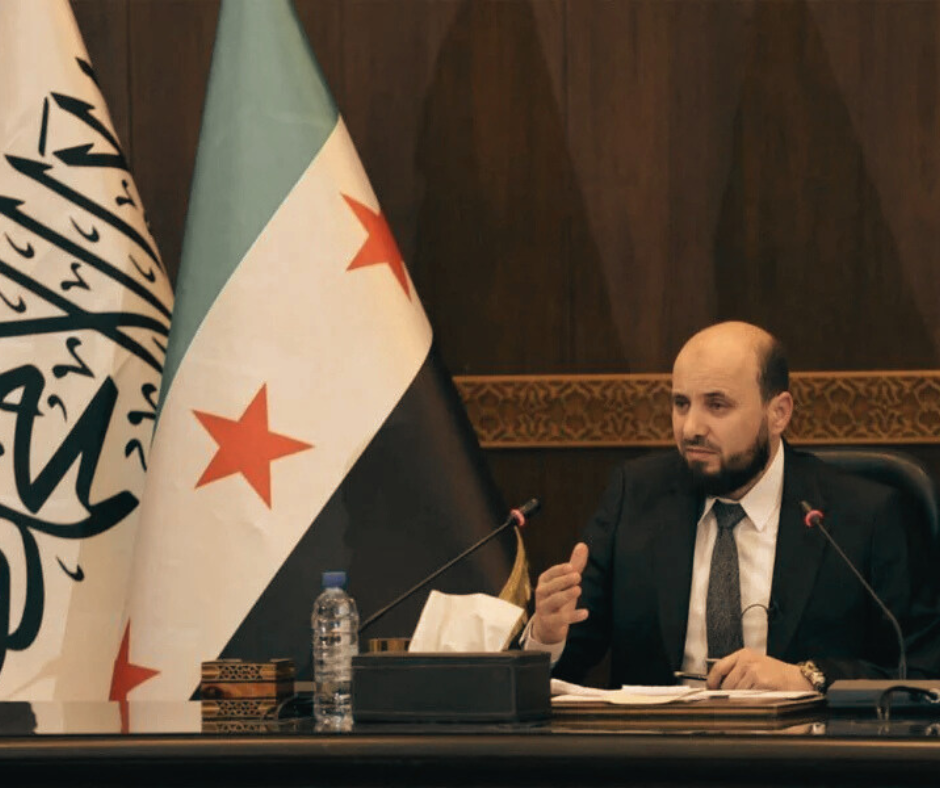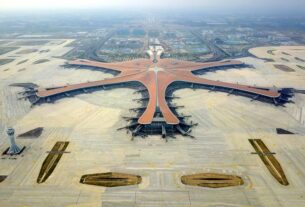DAMASCUS – Syria’s newly appointed transitional Prime Minister, Mohammad al-Bashir, called for “stability and calm” on Tuesday, two days after the sudden ousting of long-time President Bashar al-Assad. The call for peace comes as the country grapples with a dramatic shift in power following a rapid rebel offensive that resulted in Assad’s flight.
Bashir, appointed by rebel forces to govern Syria until March 1, made his first public statement in an interview with Qatar’s Al Jazeera. “Now is the time for the people to enjoy stability and calm,” Bashir said. Assad, after fleeing the capital, Damascus, is reportedly in Moscow, according to U.S. sources.
The offensive, spearheaded by Islamist rebel leader Abu Mohammed al-Jolani, has brought an end to over five decades of brutal rule by Assad’s regime. Jolani, leader of Hayat Tahrir al-Sham, a group with ties to Al-Qaeda, had earlier announced plans to negotiate a power transfer and pursue former senior officials for war crimes. In an interview with Sky News, he assured that Syria would not slide back into conflict, emphasizing the need for reconstruction and development. “People are exhausted by war, and Syria is moving towards stability and development,” Jolani said.
Despite the group’s controversial background, with many Western governments designating it a terrorist organization, Jolani’s remarks were aimed at reassuring both Syrians and the international community about the future.
U.S. Secretary of State Antony Blinken echoed similar sentiments, urging nations to support a political process that is “inclusive” and non-sectarian. “The future Syrian government must respect minority rights and ensure humanitarian aid flows freely,” Blinken stressed, while also calling for the prevention of Syria becoming a breeding ground for terrorism. Although the Islamic State no longer controls significant territory in Syria, it remains active, as evidenced by a deadly attack in the desert where 54 Syrian soldiers were killed.
The international community is closely monitoring the developments, with UN Special Envoy Geir Pedersen urging the new leadership to turn their messages of unity into tangible actions. “The world is watching. What we need now is action that reflects the promises of inclusiveness,” Pedersen said.
While international tensions simmer, with EU Foreign Policy Chief Kaja Kallas warning of the risks of sectarian violence, Syria’s internal challenges remain urgent. Thousands of families have launched desperate searches for relatives who disappeared under Assad’s regime, with many feared to be held in secret prisons.
The plight of detainees, especially in notorious facilities like Saydnaya prison, has drawn significant attention. Families, many of whom have not heard from loved ones for years, gathered outside prisons, hoping for news. “I’ve been searching for my brother since 2013. We think he’s here,” said one woman, describing the emotional toll of Syria’s conflict.
As the country navigates a complex and uncertain future, the United Nations and human rights groups are calling for accountability. UN investigators, who have documented Assad’s regime’s crimes for years, view his departure as a potential turning point. “We now have access to the crime scene,” said a UN representative, signaling that efforts to hold those responsible for atrocities may intensify.
Meanwhile, the region remains volatile. Israeli forces have launched several strikes on Syrian territory, targeting military sites, weapons depots, and research facilities suspected of links to chemical weapons. Israel has made it clear that it will take “forceful” action if Syria allows Iran to establish a presence within its borders or transfer weapons to Hezbollah.
As military tensions rise, both internally and externally, the people of Syria remain caught in the struggle for peace, justice, and rebuilding. The road ahead is fraught with challenges, but the hope for a more stable and inclusive Syria persists.





